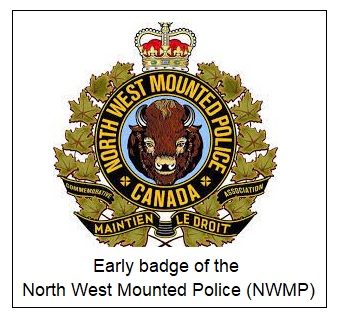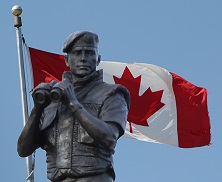True and Fascinating Canadian History
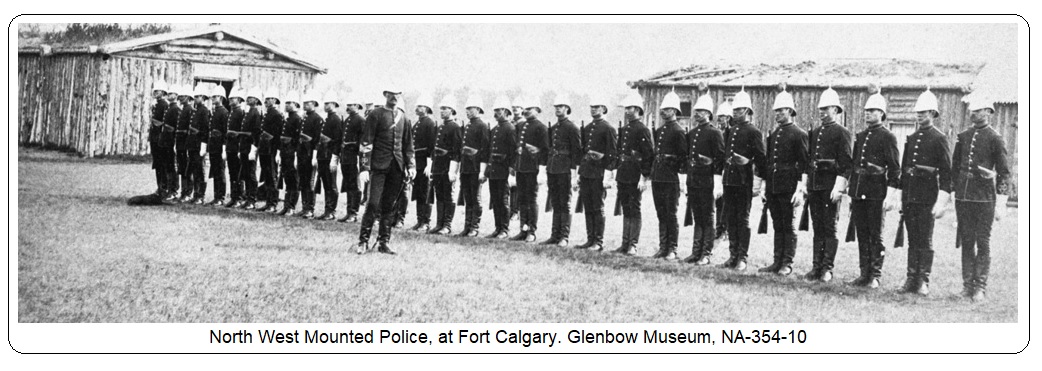
Vet of the Month: September, 2021
The NWMP and Recruit Readiness
RCMP Vets. Ottawa, ON

After Royal Assent was given for the North West Mounted Police (NWMP) on May 23, 1873, Recruiting Officers spread out over the Atlantic provinces, Ontario and Quebec. The criteria for selecting recruits into the NWMP was minimal. Well defined, measurable hiring standards had not yet been adopted. The goal was to find the strongest recruits, but Recruiting Officers had no definitive hiring guide. There were also specific time limits placed on Recruiters to meet their quotos.
In his well researched book written in 2017 entitled, The North West Mounted Police 1873 to 1885, Canadian author Jack Dunn laid out the bare qualifications for the first recruits. Dunn wrote, "The selection criteria recommended active and able-bodied men of good character, between the ages of 18 and 40 years, with a sound constitution and the ability to ride. Literacy could be either in French or English." (Dunn: 21). Canadian history has recorded the names of the first recruits, and some noticeable character flaws as well as some personal strengths became evident within the first few months of their engagement.

Among the recruits, some exhibited arrogance, alcoholism and a diminished lack of loyalty while others demonstrated perseverance, dependability, a strong work ethic, bravery, and self- sacrifice. An air of urgency and expediency drove the Recruiting Officers, and it appeared that some vital characteristics were overlooked which in hindsight might have aided the NWMP to get off on a sure foot. On the one hand, the Recruiting Officers did their best in the compressed time allowed them, but on the other hand, scarce consideration was given to preferences such as; cultural diversity among the recruits, background checks, critical examination of health and medical records, drug dependency, as well as testing to assess physical push and pull strength and mental endurance. Some positive qualities have always been cherished in the selection of police recruits; honesty, a strong moral character, respect for everyone in the community, a sense of justice and fairness and impartiality to name but a few.
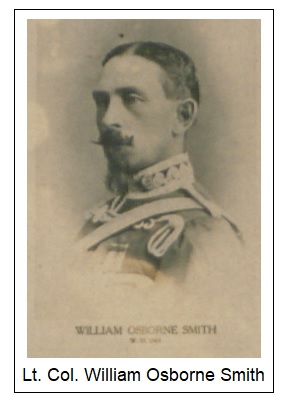
Within a month, the first contingent of 150 recruits were hired without delay. After assembling in Toronto, they departed by rail for Collingwood. It was imperative for the contingent to cross the Great Lakes and reach their destination in Winnipeg prior to winter. Almost immediately, the less disciplined recruits fell into poor favour along the train route and were subject to harsh discipline. Author Jack Dunn wrote, "Sub Constable J. Nelson missed the train in Toronto and T. O'Neil, a trumpeter, was sent back for drunken behaviour." (Dunn: 22). The loss of a single recruit would have an impact on the success of the March West in the future, and this priority was not lost on senior Officers.
Recruits from New Brunswick and Quebec faced off with Acting Commissioner William Osborne Smith shortly after their arrival at Lower Fort Garry in November, 1873. The recruits had not been fully appraised that their work committment was for three years. Instead, they were mistakingly under the impression they could resign after giving six months notice. Sixteen recruits from Eastern Canada refused to sign the official engagment papers and they quit. Jack Dunn wrote, "Their loss seriously affected the representation from east of Ontario." (Dunn: 24). The confusion dampended esprit de corps among the recruits who remained at Fort Garry.

A surprising number of recruits were found not to have the physical stamina for the March West. In January, 1874, medical exams were conducted on the new recruits in Winnipeg and some very significant health deficiencies were noted. Author Jack Dunn explained, "...Dr. David Young, examined the entire force. He found two men who were blind in one eye, five men with heart ailments, one man with tuberculosis, another with syphilis, and one man with a fractured leg. In all, nineteen recruits were released from the Force in the first two months." (Dunn: 25). It proved that some physicians who were hired by the NWMP to conduct initial medical exams of potential recruits could not be trusted as too many men were found later to be suffering from major health concerns and were severaly limited in physical activities. If recruits in weak condition had been allowed to serve through the March West, they likely would have have placed an addition burden on the NWMP health system.
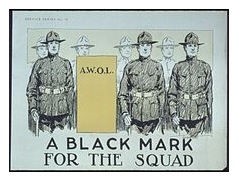
Within a few weeks, a few dozen recruits also deserted. In their celebrated book, The Royal Canadian Mounted Police: A Century of History authors Nora and William Kelly addressed the problem of desertions especially during early preparations and the months leading up to the March West. The authors wrote, “One by one they began to desert and cross into the US. When the number of desertions reached thirty-one, Commissioner French called a full dress parade ... He addressed his men. A few [more] misfits left." (Kelly: 28). Yet even after the Commissioner's speech, desertions by the NWMP continued and it was a problem for all the days and months of the March West. It was once estimated that over 400 recruits in total were originally hired by Recruiting Officers, but when the March West eventually stepped off in July, 1874, the number of suitable recruits had dwindled to just over 300.
Among the first hired recruits were some men who accepted their responsibilities seriously, who were deeply committed to the March West and who were unshaken in the difficult tasks which they faced. Of the three contingents of recruits who left Collingwood, one contingent in particulr faced hazardous winter weather as they approached Winnipeg. Jack Dunn wrote, "A snow storm battered the men in their open boats (manned by Iroquoian paddlers) while crossing Rainy Lake and they reached Fort Francis looking in one man's description, like half drowned rats." (Dunn: 23). The recruits were near frozen, and they had every reason to quit. It would not have been surprising if the entire contingent had turned around and returned to the comforts of home.
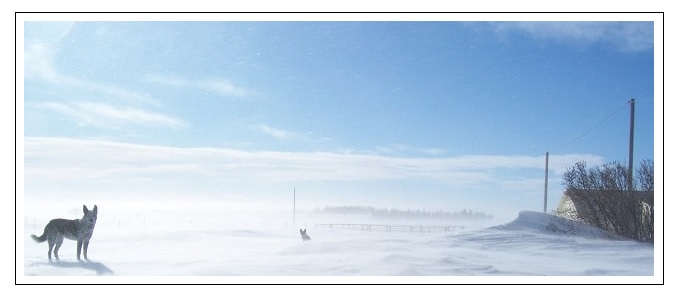
After reaching Lake of the Woods, one contingent faced miserable weather and a snowstorm delayed any further travel. However, after a three day wait, their steamer reached the other shore. The men encounted thick ice which was necessary for them to break so that they could disembark. However, they faced other weather challenges which also threatened their lives. Jack Dunn wrote, "They found the waiting carts frozen in mud and the ice covered tents could not be unfolded. This meant a discouraging walk to Winnipeg, a distance of 160 km, helped by two or three ox carts carrying the baggage. That night, the troop slept on the ground in the blowing snow, and in the morning, they continued west, frost bitten and without breakfast." (Dunn: 23-24). The contingent risked their lives and they could died by exposure in the miserable and cold weather. Other men facing a similiar crisis, or recruits with less stamina would have certainly quit.
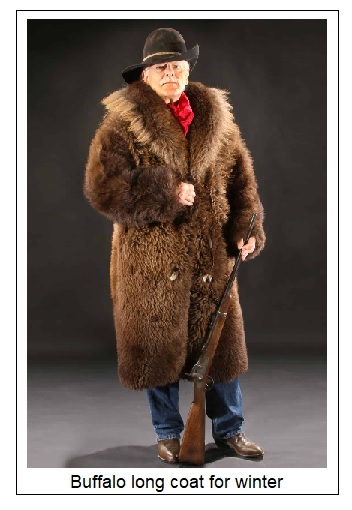
The positive legacy of the NWMP far outweighs everything that may have gone poorly during the March West. The first recruits met severe challenges and dangers which they had to face and overcome every day; logistics, severe weather, lack of nutritious food and water, isloation and the loss of basic amenities.
If one considers the total sum of shortfalls which the NWMP encountered among the first batch of recruits, and with some of its senior Officers too, it is quite understandable for historians to question how the NWMP ever fared as well as they did when they met no less than ultimate challenges. In fact, it could be argued that the early recruits of the NWMP surpassed all expectations.
Reporting from Fort Healy,
J. J. Healy
September 23, 2021
Dunn, Jack E. (2017). The North West Mounted Police 1873 to 1885. Jack E. Dunn Publisher. Calgary, AB.
Kelly, Nora and William. The Royal Canadian Mounted Police. A Century of History 1873 - 1973. Edmonton. Hurtig. 1973.
